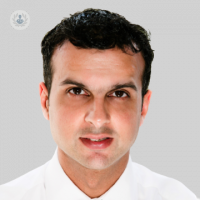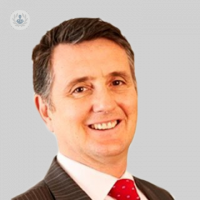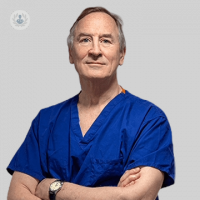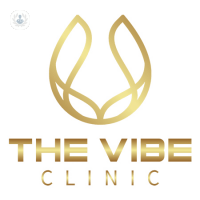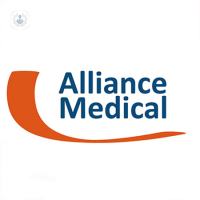What are sports injuries?
Competitive and non-competitive sports injuries are injuries that occur in athletic activities or whilst exercising. Whilst some of these happen by chance, others are facilitated by inadequate practice or poor execution in terms of technique, as well as by not using sports equipment correctly.
Sports injuries mainly consist of muscle injuries or joint and ligament injuries, such as:
- dislocations
- muscle injuries (sprains, pulled muscle, cramps)
- back injuries
- bone fractures
- tendon injuries

Prognosis
The outlook of a sports injury greatly depends on what caused it and its severity. Imaging studies can rule out structural injuries and help to assess the severity of the injury itself.
Furthermore, based on the results, the specialist can estimate how long it will take for you to recover and get back to sports, as well as your risk of getting injured again.
What are the symptoms?
The symptoms of a sports injury depend on how big and how severe the injury is. They usually include:
- immediate onset of pain
- stiffness of the affected muscle
- swelling
- bruising
- increased sensitivity of the affected area
- a feeling of heat emanating from the affected area
- decrease in range of motion
How are they diagnosed?
Sports injuries, especially muscular ones, can be diagnosed with a physical examination.
The following tests may be prescribed to get further insight on where the injury is and how severe it is:
- X-ray scan
- computerised tomography (CT) scan
- magnetic resonance imaging (MRI) scan
- ultrasound
- bone density scans
What causes sports injuries?
As an example, the main risk factors for a football injury are:
- muscle fatigue
- age
- cold or wet weather
- poorly maintained training field
- quicker execution and overall rhythm of the game
- a different or new training technique
Additionally:
- stumbling upon another player
- playing too fast or too slowly, without having warmed up adequately
- inadequate training program
- poor execution of a movement
- eating an unhealthy diet
- not resting enough
How can sports injuries be prevented?
The main preventive measures include:
- ensuring you warm-up adequately
- eating a healthy diet
- staying hydrated
- using proper equipment
- wearing adequate sportswear and shoes
How are sports injuries treated?
Treatment largely depends on how severe the injury is.
It usually consists of:
- physical therapy
- surgery
- applying ice packs
- taking painkillers or anti-inflammatory medications
- bed rest
Which doctor should I talk to?
You should see a specialist in sports medicine, but you may also be treated by physiotherapists and orthopaedic surgeons, depending on your treatment plan and injury.
07-05-2016 01-18-2024Sports injuries
Mr David Houlihan-Burne - Orthopaedic surgery
Created on: 07-05-2016
Updated on: 01-18-2024
Edited by: Carlota Pano
What are sports injuries?
Competitive and non-competitive sports injuries are injuries that occur in athletic activities or whilst exercising. Whilst some of these happen by chance, others are facilitated by inadequate practice or poor execution in terms of technique, as well as by not using sports equipment correctly.
Sports injuries mainly consist of muscle injuries or joint and ligament injuries, such as:
- dislocations
- muscle injuries (sprains, pulled muscle, cramps)
- back injuries
- bone fractures
- tendon injuries

Prognosis
The outlook of a sports injury greatly depends on what caused it and its severity. Imaging studies can rule out structural injuries and help to assess the severity of the injury itself.
Furthermore, based on the results, the specialist can estimate how long it will take for you to recover and get back to sports, as well as your risk of getting injured again.
What are the symptoms?
The symptoms of a sports injury depend on how big and how severe the injury is. They usually include:
- immediate onset of pain
- stiffness of the affected muscle
- swelling
- bruising
- increased sensitivity of the affected area
- a feeling of heat emanating from the affected area
- decrease in range of motion
How are they diagnosed?
Sports injuries, especially muscular ones, can be diagnosed with a physical examination.
The following tests may be prescribed to get further insight on where the injury is and how severe it is:
- X-ray scan
- computerised tomography (CT) scan
- magnetic resonance imaging (MRI) scan
- ultrasound
- bone density scans
What causes sports injuries?
As an example, the main risk factors for a football injury are:
- muscle fatigue
- age
- cold or wet weather
- poorly maintained training field
- quicker execution and overall rhythm of the game
- a different or new training technique
Additionally:
- stumbling upon another player
- playing too fast or too slowly, without having warmed up adequately
- inadequate training program
- poor execution of a movement
- eating an unhealthy diet
- not resting enough
How can sports injuries be prevented?
The main preventive measures include:
- ensuring you warm-up adequately
- eating a healthy diet
- staying hydrated
- using proper equipment
- wearing adequate sportswear and shoes
How are sports injuries treated?
Treatment largely depends on how severe the injury is.
It usually consists of:
- physical therapy
- surgery
- applying ice packs
- taking painkillers or anti-inflammatory medications
- bed rest
Which doctor should I talk to?
You should see a specialist in sports medicine, but you may also be treated by physiotherapists and orthopaedic surgeons, depending on your treatment plan and injury.
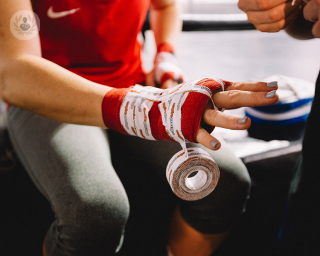

How to mentally recover from a sports injury
By Dr John Tanner
2025-02-05
Understandably, an injury can feel like a huge disappointment for any sports player or athlete. This potentially minor or major complication can form a range of emotional responses, often negative, which can lead to anger, denial and depression. Sports medicine specialist Dr John Tanner clarifies the significance of mental health in recovery. See more
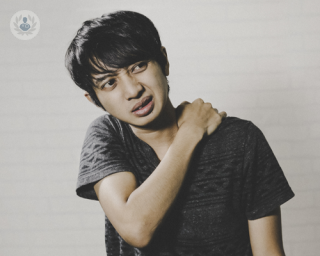

Sports-related shoulder dislocations: Causes, risks and effective treatments
By Mr Arvind Mohan
2025-02-05
Shoulder dislocations are a common injury in sports, particularly in activities that involve high-impact collisions, falls, or overhead motions. Athletes participating in rugby, football, swimming or weightlifting are at increased risk due to the significant strain placed on the shoulder joint. See more
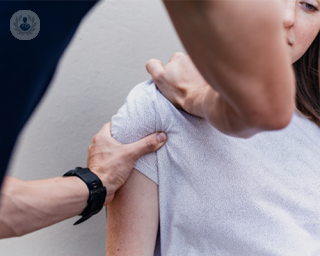

Chronic and acute sports injuries: no pain, no gain?
By Mr Pramod Achan
2025-02-05
Revered consultant orthopaedic surgeon Mr Pramod Achan, who practises in London, clarifies the differences between chronic and acute sports injuries. Mr Achan discusses how they are determind, including some typical examples of each, and when help from a specialist should be sought. See more


Ski safe: Top tips to prevent ACL tears on the ski slopes
By Mr Amir Qureshi
2025-02-05
ACL tears can bring an abrupt end to your skiing holiday. In this article, we ask highly respected consultant knee surgeon and limb reconstruction specialist Mr Amir Qureshi how skiers can best prepare for their holidays and avoid sustaining this type of knee injury. He also gives expert insight on how treatment plans are established for patients, including complementary treatment for meniscal tears. See more
Experts in Sports injuries
-
Mr Manoj Sood
Orthopaedic surgeryExpert in:
- Hip replacement
- Knee replacement
- Anterior cruciate ligament
- Sports injuries
- Knee cartilage replacement
- Tendon injuries
-
Mr Steven Corbett
Orthopaedic surgeryExpert in:
- Sports traumatology
- Sports surgery
- Sports injuries
- Shoulder surgery
- Elbow Pain
- Elbow arthroscopy
-
Mr David Houlihan-Burne
Orthopaedic surgeryExpert in:
- Meniscus
- Knee arthroscopy
- Anterior cruciate ligament
- Arthritis
- Sports injuries
- Sports traumatology
-
Mr Jonathan Lucas
Paediatric orthopaedicsExpert in:
- Traumatic injury
- Paediatric orthopaedics
- Scoliosis
- Sport growth factors
- Sports injuries
- Spinal surgery
-
Mr William Bartlett
Orthopaedic surgeryExpert in:
- Sports injuries
- Hip replacement
- Hip pain
- Knee replacement
- Knee arthroscopy
- Hip arthroscopy
- See all

The VIBE Clinic
The VIBE Clinic
87-89 Kings road, Reading, RG1 3DD
No existe teléfono en el centro.
By using the telephone number provided by TOP DOCTORS, you automatically agree to let us use your phone number for statistical and commercial purposes. For further information, read our Privacy Policy
Top Doctors

The Parkside Suite Frimley
The Parkside Suite Frimley
Frimley Park Hospital, Portsmouth Road, GU16 7UJ
No existe teléfono en el centro.
By using the telephone number provided by TOP DOCTORS, you automatically agree to let us use your phone number for statistical and commercial purposes. For further information, read our Privacy Policy
Top Doctors

Alliance Medical Marylebone
Alliance Medical Marylebone
10-11 Bulstrode Place, London. W1U 2HX
No existe teléfono en el centro.
By using the telephone number provided by TOP DOCTORS, you automatically agree to let us use your phone number for statistical and commercial purposes. For further information, read our Privacy Policy
Top Doctors
-
The VIBE Clinic
87-89 Kings road, Reading, RG1 3DD, ReadingExpert in:
- Anti-aging
- Dermatology
- Cosmetic Dermatology
- Sports Medicine
- Platelet-rich plasma
- Skin rejuvenation
-
The Parkside Suite Frimley
Frimley Park Hospital, Portsmouth Road, GU16 7UJ, CamberleyExpert in:
- Cardiology
- Orthopaedic surgery
- Breast augmentation
- Dermatology
- Endocrinology
- Gastroenterology
-
Alliance Medical Marylebone
10-11 Bulstrode Place, London. W1U 2HX, Central LondonExpert in:
- Cardiology
- Diagnostic Imaging
- Ultrasound
- Gastroenterology
- Neurology
- Magnetic resonance
- See all
- Most viewed diseases, medical tests, and treatments
- Cardiovascular disease
- Trigeminal neuralgia
- Chronic headache
- Peripheral nerve block
- Migraine
- Joint pain
- Testicular ultrasound
- Lumbar herniated disc
- Breast ultrasound
- Abdominal pain

